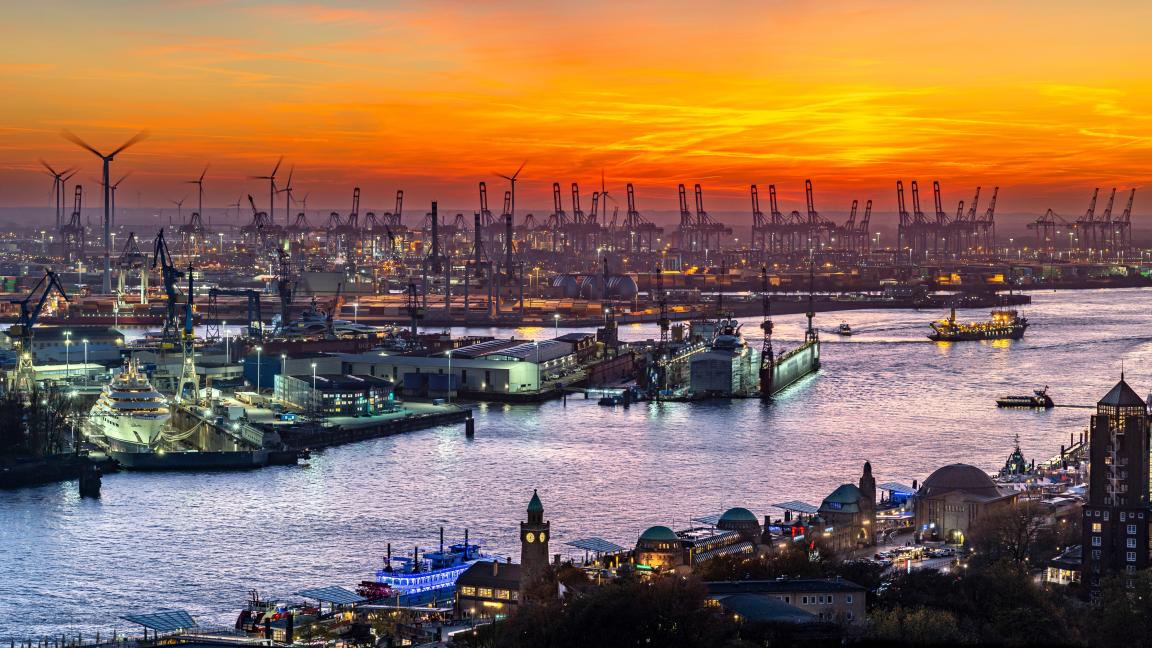New requirements for harbour grids
Conventional vessels produce harmful emissions because they employ fossil fuel while manoeuvring and staying at seaports within harbour areas. While staying at berth, the vessels require power for multiple purposes, such as loading, unloading, cooling, and ventilation.
Traditionally, the needed power is produced with an auxiliary diesel engine, which creates pollution in the harbour area.
Today, power is increasingly supplied from shore using so-called onshore power supply systems. Moreover, requirements to reduce emissions make it necessary to shift towards electric and hybrid vessels, with battery energy storage as a key component of onboard power systems.
– All this poses major development needs for electric grids at harbours, says Jagdesh Kumar, who will publicly defend his dissertation at the University of Vaasa on Friday 8 December.
Smart grids in harbour areas help reduce emissions
Conventional harbour grids do not have a high enough power capacity and the required infrastructure to support modern vessels. Thus, harbour grids need to be redesigned in such a way that they properly support the onshore power supply and battery charging needed by modern vessels.
In his dissertation, Kumar has studied new technical solutions for future harbour grids. With these newly designed models for smart grids in harbour areas, compliance with stringent emission rules is possible.
– The harbour area smart grid includes battery energy storage, enables the use of local renewable energy sources, and is based on advanced control solutions to manage the system, says Kumar.
Studies based on simulations
Kumar's dissertation is based on extensive simulations of various harbour grid models and control solutions. Collaboration with industrial partners enabled the creation of realistic models. In part, Kumar was also able to use data from real grids.
This dissertation can serve as basis for developing future business strategies for ships owners, port administrators, and local authorities as technology develops and emission restrictions become more stringent in every part of the world.
Public defence
The public examination of M.Sc. Jagdesh Kumar’s doctoral dissertation “Design and control of harbour area smart grids with application of battery energy storage system” will be held on Friday 8.12.2023 at noon at the University of Vaasa, lecture hall F652 (Fabriikki building)
It is possible to participate in the defence also online:https://uwasa.zoom.us/j/68665871390?pwd=eGdGWkNtNHdPZEJSOHNVKzh4Q0lCUT09,password: 831492
Professor Mehdi Zadeh (NTNU) will act as an opponent and Professor Kimmo Kauhaniemi as a custos.
Doctoral dissertation
Kumar, Jagdesh (2023) Design and control of harbour area smart grids with application of battery energy storage system. Acta Wasaensia 523. Doctoral dissertation. Vaasan yliopisto / University of Vaasa.
Main photo: © AdobeStock
Further information
Jagdesh Kumar, tel. +358 44 956 3693 (Finland), +49 179 144 7407 (Germany), jagdesh.kumar@uwasa.fi or jagdesh.k24@gmail.com.
Jagdesh Kumar was born in Larkana, Pakistan. He holds a bachelor’s degree in electrical engineering from Quaid-e-Awam University of Engineering, Science and Technology, Pakistan in 2006 and a master's degree in electrical power engineering from RWTH Aachen University, Germany in 2013. His previous career includes lecturing and research at universities in Pakistan and Germany. Since 2016, he has been working as a project researcher at the University of Vaasa and later as a doctoral researcher. He currently lives in Germany and works as an engineer at LG Energy Solution Europe GmbH.

